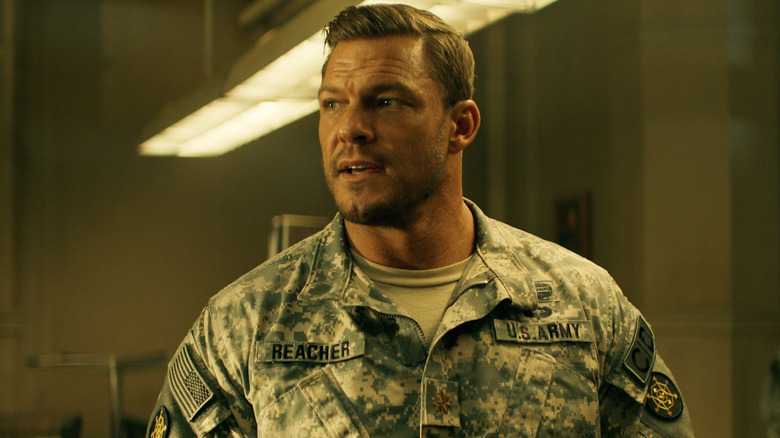Lee Child’s “Jack Reacher” books are tasty slabs of red meat for those who prefer their pulpy action hard-boiled, providing readers with a motley collection of crime investigations, despicable bad guys, and a hero who’s the sort of unstoppable force that could make an immovable object shuffle a little.
And so far, Prime Video’s “Reacher” has stayed largely faithful to that ethos. The show might not hold up under critical scrutiny, but it’s not meant to. Child’s original novels are page-turners designed to be consumed in a single go by anyone and everyone regardless of their familiarity with the greater franchise, and the series is cut squarely from the same cloth.

Be that as it may, those who invest themselves in the extended “Reacher” mythology will be rewarded for their efforts. Throughout extensive flashbacks, season 1 fleshes out Jack Reacher’s backstory, starting with his days as a military brat hopping from one corner of the world to another with his older brother Joe and their parents.
And while Reacher and his sibling’s moral compasses regularly landed them in hot water growing up, they always sided with the underdog and the marginalized in a fight, which earned them the sympathy of their mother (who instilled the pair with much of their moral backbone).
Believing he could right many of the wrongs with his own two (extremely powerful) hands, Reacher would grow up to become a military man himself, resulting in a decade-plus career that saw him decorated with all manner of medals and honors for his service in the U.S. Army. Yet, even when it cost him a promotion from Captain to Major, Reacher couldn’t help but go rogue when his conscience told him to, as he did when he caught a group of adults abusing children while deployed in Iraq.
You do not mess with the special investigators

Brooke Palmer/Prime Video
You can’t keep a good man down — especially not a mountain of a man like Reacher — and before he knew it, Reacher was a Major once again. This time, however, he was made the head of the 110th MP Special Investigations Unit, a team of officers charged with cracking the toughest internal cases the U.S. Army could throw at them.
As /Film’s Michael Boyle has noted, Reacher’s Special Investigators appear to be a semi-fictionalized version of the real-life Army’s Field Investigative Unit, a group whose members “are of the highest caliber and have extensive investigative experience,” per the official Army website.
If his superiors believed burdening Reacher with more responsibilities and paper to push around would curb his anti-authoritative tendencies, they were sorely mistaken. Flashbacks sprinkled across “Reacher” season 2 shine a light on one particular drug bust that the Special Investigators carried out against the orders of their promotion-hungry Commanding Officer, who didn’t want the stain on his record that would come from them shining a light on the illicit operation.
Far from the final straw, Child’s “Jack Reacher” novels detail similar incidents that deepened Reacher’s sense of disillusionment with the Army, culminating with the murder investigation that led to his departure (as chronicled in the author’s 2011 prequel book, “The Affair”).
In Child’s 2005 book “One Shot,” Reacher muses on how spending his early life in the cogs of the military machine led him to his vagabond lifestyle.
(“I was a little angry and it was probably an immature reaction. But I got used to it.”) Armed with the skills he needs to right injustices as a civilian, Reacher set out on his own, transforming into the folkloric vigilante he’s known for being. Is that realistic? Absolutely not. But if you’re tuning into “Reacher” for verisimilitude, you’re in the wrong place, friend.